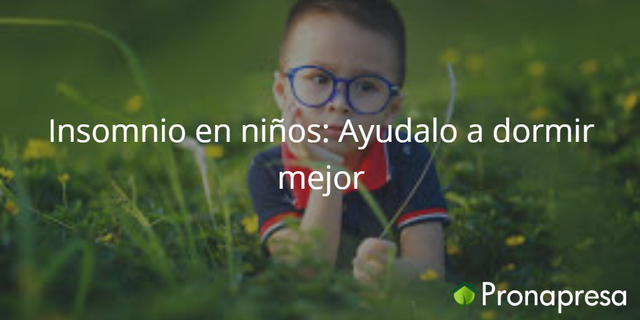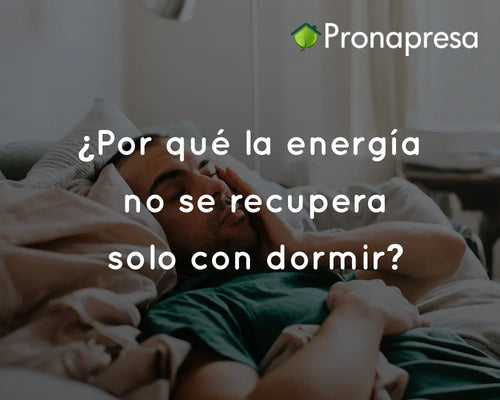 Insomnia in children is a frequent reason for consulting a pediatrician, despite the general perception that children always sleep well and a lot. It is estimated that between 25 and 50% of children under 5 years of age have had problems falling asleep for more than 3 months.
Insomnia in children is a frequent reason for consulting a pediatrician, despite the general perception that children always sleep well and a lot. It is estimated that between 25 and 50% of children under 5 years of age have had problems falling asleep for more than 3 months.
Sleep is one of the most important aspects of life. It allows us to cope with daily activities, but it is also essential to maintain a healthy physical and mental state.
The problem is that sleep habits must be instilled from the first moment of life. Insomnia in children has numerous repercussions on their development and throughout adult life. Therefore, in this article we explain everything you need to know and how we can help them improve their sleep.
What is insomnia in children?
Insomnia in children, as in adults, consists of difficulty achieving sleep. It can also consist of frequent awakenings during the course of a night. In fact, it is normal for both situations to occur.
Medicine defines insomnia as difficulty starting or maintaining sleep at least 3 times a week, over a month. It is important to highlight this because not sleeping well for one or two nights should not be considered insomnia.
Sleep can be affected by many factors in daily life. The causes of insomnia in children can be environmental, psychological or medical. For example, it could be a reflection of conflict within the family or a sign of child abuse.
However, almost 70% of cases of insomnia in children are due to incorrect bedtime habits. As we said before, having adequate sleep hygiene from the first moment of life is essential for the rest of the stages.
"A good sleep habit is key to cultivating from early childhood"
What other sleep problems exist?
Insomnia in children is one of the most common sleep problems, but it is not the only one. In fact, they often tend to be associated with others. For example, it is common for insomnia to be related to a child's fear of sleeping alone.
Another category of disorders are parasomnias. They are phenomena that appear during sleep, once the child has already managed to fall asleep. Here we find nightmares, night terrors, sleep apnea and enuresis, among others.
Night terrors appear in the first part of sleep, a few hours after falling asleep. They consist of the child suffering from intense and uncontrollable fear. At this time, the child does not control his movements nor can he regain consciousness.
The main difference with nightmares is that night terrors are not usually remembered when waking up. Nightmares, for their part, do usually leave a negative memory and, in addition, they occur during the REM phase of sleep.
Sleep apnea is also a disorder that stands out in childhood because it scares parents. The child stops breathing for about 10 seconds while sleeping. This disorder is associated with others that come later, during the day, since the child does not rest well and suffers the consequences in his studies, for example.
What symptoms does insomnia cause in children?
Many times, detecting insomnia in children can be complex for parents and pediatricians. It is important to pay attention to your attitude when going to bed, because at that moment you may be nervous or reluctant to go to bed.
In addition, during the day it is common for the child to appear tired or not be active. During the night, the infant will try to look for entertainment to delay the moment of sleep itself. This may be a request to read another story or go to the bathroom frequently.
Sometimes they only seek the company of their parents or an adult relative. Something similar happens with nightmares, and it is explained by the fear or terror of loneliness and darkness. In the case of little ones, they may cry for hours.
"Creating habits for sleep hygiene is one of the ways to prevent insomnia in children"
How to avoid insomnia in children
Insomnia in children requires parents to create a series of healthy habits and behaviors to solve it. Although many choose drugs as a solution to the problem, in the case of children they are not usually very helpful.
There are a series of measures that, according to different studies, help create good sleep hygiene. First of all, it is recommended not to sleep next to the child. That is, not being present right at the moment the dream reaches.
In this way, the infant is prevented from associating sleeping with a presence. Additionally, some management guidelines recommend gradual extinction. This involves leaving the children in bed and entering the room during the night. More and more time must pass between one visit and another.
What we must keep in mind is that it is possible to consult with a pediatrician. The specialist could make specific recommendations for each case and help us develop a useful routine.
Sharing is health! :) , Follow us on our social networks.
PRONAPRESA
"Because prevention is better than cure"





















































